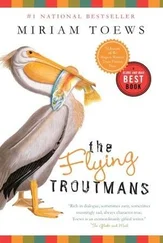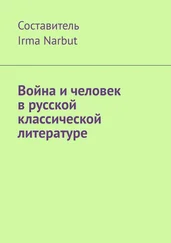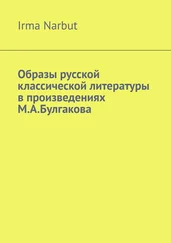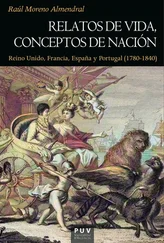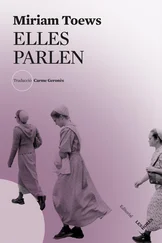You’ll get used to it, I said. It’s just a pain in the ass.
Goodbye childhood, said Aggie.
Take this and put it in your panties, I said. I handed her one of Ximena’s diapers.
No! said Aggie.
Fine, then bleed all over, I said. We had a little fight then. I was trying to count and kept having to start again. I turned my back to Aggie to give her the option of using the diaper after all without me noticing. I made a point of counting out loud, slowly, while she figured it out.
One minute you’re jumping in the sparkly waves for the first time in your life and completely unable to stop laughing and the next you’re shedding the useless lining of your uterus and smearing messages in blood in porcelain bowls and sandy beaches. Words of shame like I’m sorry about this mess and the smell and I don’t know why the hell I’m crying on such a beautiful summer day.
At the airport Gustavo held each of us close to his warm body, his beating heart, and told us that if we were ever in some part of Mexico, I can’t remember now which part, we had to go to the lake of echoes and that anything we said would be cannonballed right back at us clear as day. If you say, for instance, the name of the person you love, then the world will say it back to you as though it is confirming that it understands.
You can yell anything, said Gustavo, and the world will confirm it. You could yell Vive mucho tiempo el muerto! Or you could yell Esto es una locura!
We will, I said. If we can find it.
Or you could yell Chivas! he said. El Rebaño Sagrado! That’s my team.
What team? said Aggie.
Soccer, I said.
The sacred herd, said Gustavo. You haven’t told me your names.
I know, I said. I’m sorry.
I understand, he said. I’m a cab driver. Nothing surprises me.
That’s good, I said.
No, said Gustavo, it’s a tragedy.
We said goodbye to Gustavo. But then he said wait a minute and he ran to his cab and took something out of his glove compartment and ran back to us and handed me a tiny photocopied picture of a boy.
Is this your son? I said.
Yes, said Gustavo, it’s Raoul Elisandro Lopez Mundo. He’s nine years old. If you see a boy who looks like this please tell him to contact me, Gustavo, at the address printed on the back. He turned the paper over and pointed at the telephone number and address in Acapulco.
Where did you last see him? said Aggie.
At home, said Gustavo, in Mérida.
That’s so far away, said Aggie. What’s the population of Mexico? Now that she had bid farewell to her childhood and all of its impossible dreams she had suddenly become ruthlessly pragmatic. Gustavo and I shrugged.
Millions and millions, I said.
How will we find him? she said. And hasn’t he changed since this picture was taken?
I know, said Gustavo, that’s true. That’s all true.
It would be a miracle if we found him, said Aggie.
Yes, said Gustavo.
Aggie put the photo into our plastic bag of random stuff and we stood on the curb outside the airport and waved goodbye again. Aggie made Ximena wave too, by waggling her arm around like a rag doll.
We all fell asleep on the plane to Mexico City. I was trying to stay awake long enough to make a mental list of the things that we needed. They were all simple things: food, shelter, clothing, money, school for Aggie, a job for me and a babysitter for Ximena. I had wanted to get my notebook out of the plastic bag but I couldn’t reach it without waking up my sisters. Aggie’s head was on my shoulder and Ximena was curled up in my lap with her arms around an empty bottle. I imagined Jorge and Wilson on either side of me, stroking my hands and agreeing to get along. We were all smiling. We’ll live together as an unusual family, said Jorge. We’ll have an apartment with big windows, said Wilson. Or a lighthouse with round rooms, said Jorge. The last thing I heard was the voice of an older woman who was sitting behind me and talking to a young man. Where is the art made from intense personal necessity? she said in Spanish. He answered her quietly, whispering, and I couldn’t make out what he said.
When we landed the three of us moved dreamlike through the artificial world of the airport and then out and into the real world of Mexico City and for the first time in a million years it occurred to me that my chest wasn’t hurting and it was as though I were experiencing a strange, foreign feeling like bliss or something which meant that either I had died in my sleep on the plane or I don’t know what.
Where would you like to go? said the taxi driver at the airport.
Aggie and Ximena and I all looked at each other for a couple of seconds and then I said well, I guess the Zócalo?
The Zócalo? said the taxi driver. No, you don’t want to go to the Zócalo now. There are thousands of people there protesting. It’s a zoo. Total chaos.
I know, I said. I didn’t know what else to say. It was the only place in Mexico City that I could name and that was only because Diego had been talking about it on that day when we were stuck in the field waiting for the right kind of rain.
I won’t be able to drop you off at the Zócalo, said the taxi driver. Or even close to it. All the side streets coming off it are jam-packed too. It’s not a good idea to go there.
I know, I said. That’s okay. Just as close as you can get will be fine.
He shook his head and peered at us through the rear-view mirror. I smiled at him. He looked worried. I imagined myself reaching over the seat and moving my finger gently over the ridge of his furrowed brow the way Marijke had done to me on the day we met.
We drove down wide avenues and narrow streets and past a park where men were hanging upside down from ribbons and spinning around a very tall pole, it must have been two hundred feet up in the air. The ribbons were wrapped around their feet so their arms were free to stretch out like wings or to hold on to tiny horns and drums which they blew and banged on periodically while they spun upside down way above the earth.
What’s that? said Aggie.
A tradition, said the taxi driver.
We turned around and peered up at the men from the back seat window until we couldn’t see them anymore.
It’s not going to work, said the taxi driver.
What won’t work? said Aggie. Her braids had come undone and her hair was wild and twisted around her head like a sun corona. She was beautiful in a deranged way and I was relatively calm after my nap on the plane and Ximena was still very much alive and we had seen men flying serenely through the air and … well, that was enough.
Obrador won’t accomplish anything with his tent city, he said. Calderón is official and it’s done.
Ximena started to cry, this was bad news for her, and I made a bottle for her in the back seat with the last of the milk formula and the clean water. Aggie stuck her filthy finger into Ximena’s mouth so she’d have something (toxic) to suck on while I made the bottle. She gently caressed the tips of Ximena’s ears because Oveja had loved it and so why shouldn’t a baby.
Are you here to sell cheese? said the taxi driver.
No, I said. I mean yes. Aggie looked at me and rolled her eyes and muttered a word in Low German that meant something like emperor with no clothes.
Where is it? said the taxi driver.
The cheese? I said. It’s with somebody else.
The cheesemonger, said Aggie.
Right, I said. I asked Aggie in Low German if that was another ancient word she’d learned from her stone tablet textbooks and she smiled and said nothing.
We’re meeting the cheesemonger in the Zócalo, I said.
He’s next to the cobbler, said Aggie. Across from the haberdasher.
Really? said the taxi driver.
Читать дальше



